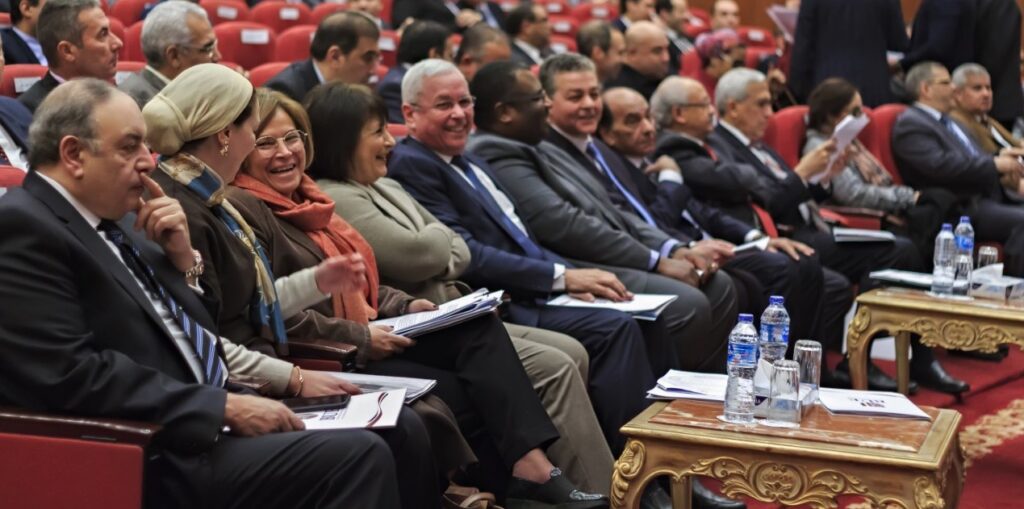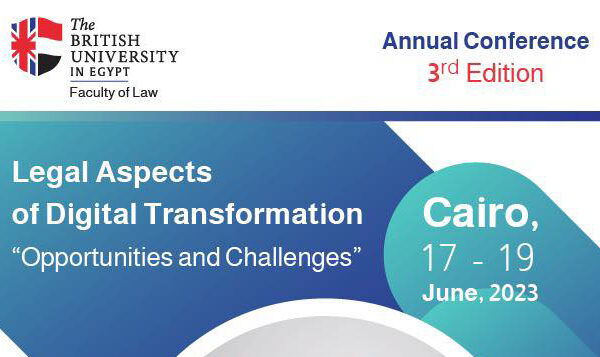The Faculty of Law in the British University in Egypt with the cooperation of United Nations Regional Office for Combating Drugs and Crime (UNODC) organised a conference under the title of “Sustainable Development and Organised Crime in the Light of Egypt’s Vision 2030”.
Organised crime (local, regional or international) directly affects the state’s authority, its policies and the rule of law. This in turn hinders states from achieving sustainable development goals and harms the society especially those who are in most need and marginalised. In this vein, crimes such as illegal migration, human trafficking, money laundering, terrorism and corruption are examples of crimes that had a negative impact the Egyptian society.
The United Nations’ conference on combating cross-border organised crimes emphasised that the success of all types of crime fighting efforts depend on whether the states have a criminal justice system that works in an efficient and humane manner. This highlights the role of judges, lawmakers and those who work in the legal field. Comprehending and assessing such tools is critical for the country’s welfare and strategic development to reach Egypt’s 2030 vision.
The Centre for Law and Emerging Technologies (CLETs) joined the venture with the UNODC ROMENA to discuss this topic and invited renowned speakers and experts from UNODC, researchers, academics, policymakers, and government officials.



